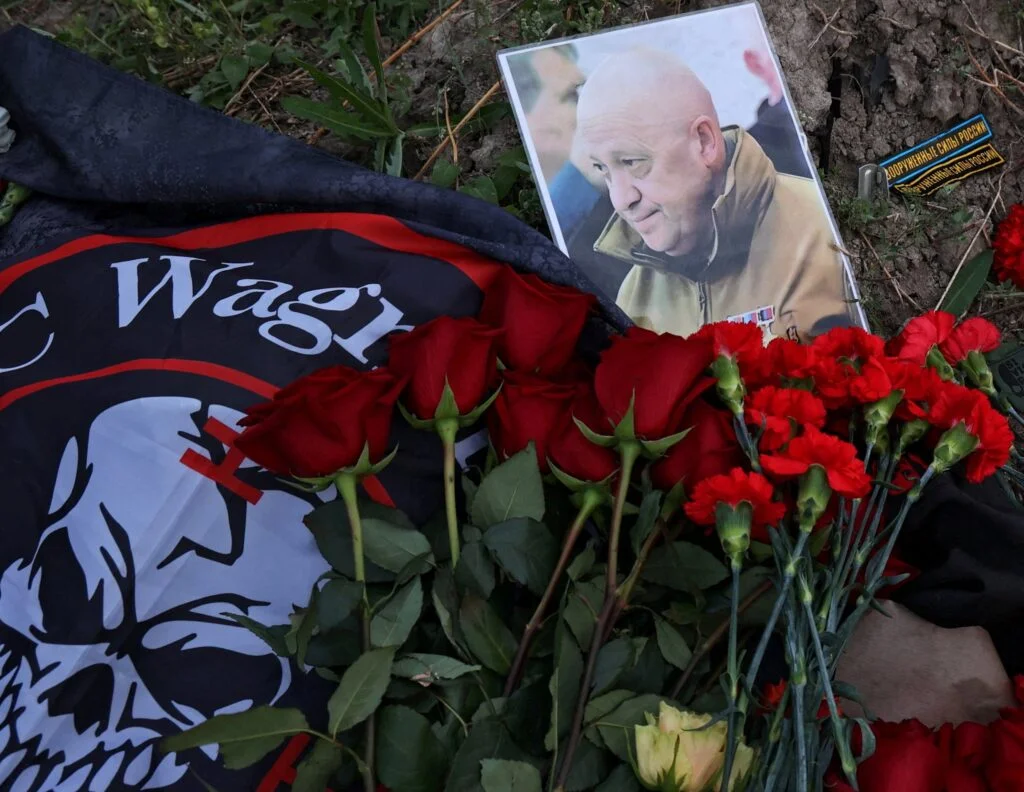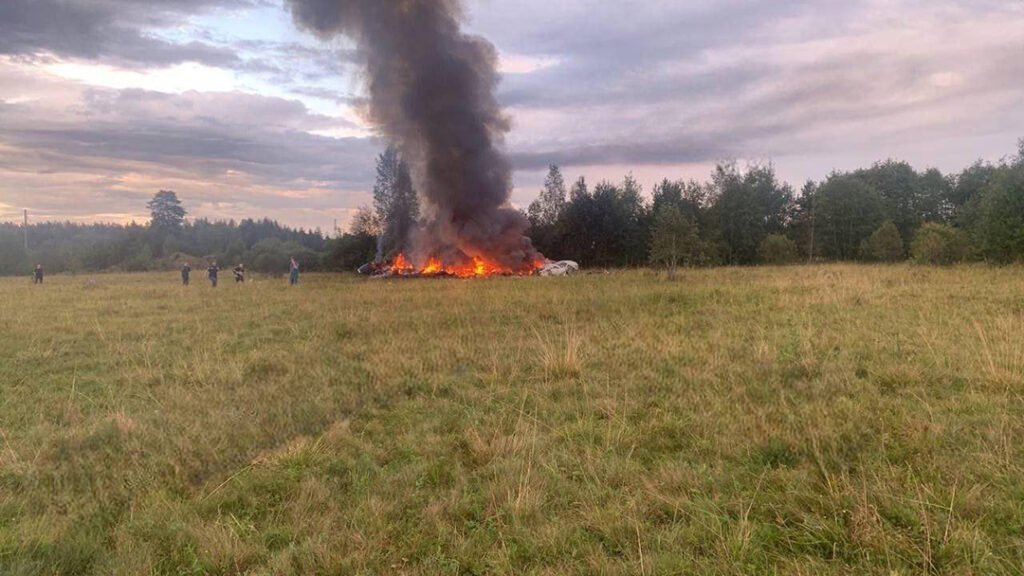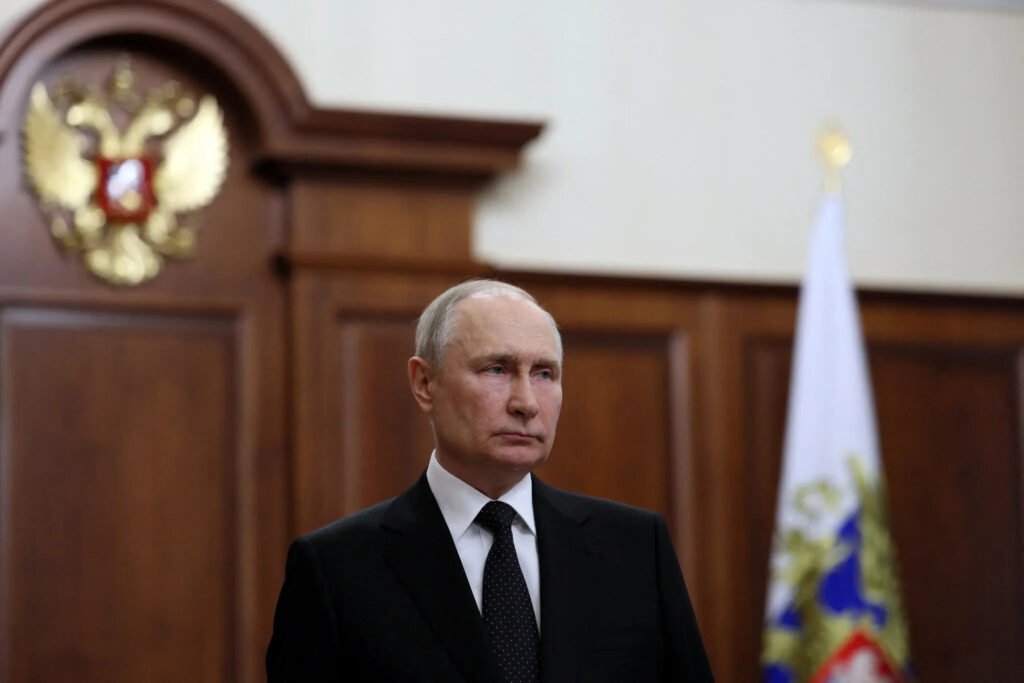The demise of Yevgeny Prigozhin, leader of the Wagner Group, sent shockwaves across global headlines, igniting debates about the internal power dynamics of Russia. The news of Prigozhin’s death, following a mysterious plane crash, prompted speculations about whether this event was yet another indicator of internal strife within Russia’s leadership or if it signaled an upcoming shift in the ongoing war in Ukraine. Pundits flooded the media with questions: Was Prigozhin really dead? Would the Wagner Group survive? And, most importantly, was this event orchestrated by Russian President Vladimir Putin?

Prigozhin’s Rise to Power
Yevgeny Prigozhin’s rise from humble beginnings, including a stint selling hot dogs, to a prominent figure in Russia’s oligarchy, exemplifies the nature of post-Soviet Russia’s elite. Known initially for his catering services to the Kremlin, Prigozhin earned the nickname “Putin’s chef” before evolving into a more menacing role as the leader of the Wagner Group, a private military force with operations extending from Ukraine to several African nations. His influence within Russia’s power structure grew as he became a key figure in the country’s military ventures, with Wagner soldiers playing significant roles in conflicts abroad, particularly in Ukraine.
Despite Prigozhin’s meteoric rise, his relationship with Putin was one of mutual convenience rather than loyalty. Like other Russian oligarchs, Prigozhin thrived under the patronage of the state, amassing great wealth and power in exchange for supporting Putin’s agenda. However, as with many power-hungry individuals, Prigozhin’s ambition seemed to eclipse his awareness of the limits of his influence.
The Wagner Group’s Influence and the Mutiny
The Wagner Group became a pivotal tool in Russia’s foreign policy, especially as the war in Ukraine dragged on. Prigozhin’s mercenaries played a vital role in battles such as Bakhmut, achieving successes that often contrasted with the Russian military’s failures. However, this success came at a price. The growing prestige of the Wagner Group became a threat to the established military leadership, particularly figures like Sergei Shoigu and Valery Gerasimov, whom Prigozhin publicly criticized for their incompetence.
The Wagner Group became a pivotal tool in Russia’s foreign policy, especially as the war in Ukraine dragged on. Prigozhin’s mercenaries played a vital role in battles such as Bakhmut, achieving successes that often contrasted with the Russian military’s failures. However, this success came at a price. The growing prestige of the Wagner Group became a threat to the established military leadership, particularly figures like Sergei Shoigu and Valery Gerasimov, whom Prigozhin publicly criticized for their incompetence.
The Plane Crash and Putin’s Calculated Revenge
In the wake of the failed mutiny, many speculated that Prigozhin’s fate was sealed. Though he had avoided immediate punishment, the question of when Putin would strike back loomed large. Putin, known for his ruthlessness and intolerance for dissent, had historically shown that he would not allow challenges to his authority to go unanswered. Thus, when news of Prigozhin’s apparent death in a plane crash broke in August, it came as no surprise to many observers.
While the Kremlin has not confirmed the exact cause of the crash, many suspect it was a calculated assassination ordered by Putin. The message behind such an act is clear: dissent, especially from those within the inner circle, will not be tolerated. Prigozhin’s death serves as a stark warning to other elites who might consider challenging the president’s authority.

The Implications for Russia’s Power Structure
Prigozhin’s death exposes the fragility of Putin’s regime. Although Putin has maintained control through a system of oligarchic patronage and state repression, the divisions within the Russian ruling class have become increasingly apparent. The rift between Prigozhin and the military establishment was just one of many conflicts simmering beneath the surface. While the immediate threat posed by Prigozhin may have been eliminated, the underlying tensions within Russia’s elite remain unresolved.
The Wagner Group’s future is now uncertain. With its leader gone, the organization may disband or be absorbed into the regular military. However, the group’s legacy, particularly its role in Ukraine and Africa, will continue to haunt the Kremlin. Wagner’s operations were deeply intertwined with Russia’s geopolitical strategy, and the loss of Prigozhin creates a power vacuum that may not be easily filled.

A Warning from Russia
Prigozhin’s rise and fall exemplify the chaotic and often brutal nature of Russian politics under Putin’s rule. His death is a reminder of the dangers of ambition in a system where power is concentrated in the hands of one man. While Prigozhin may have dreamed of challenging Putin, he ultimately underestimated the lengths to which the Russian president would go to maintain control.
For now, Putin’s grip on power appears secure, but the cracks in the foundation of his regime are becoming more visible. As Russia continues its war in Ukraine, the internal divisions within its leadership, coupled with growing discontent among the population, could lead to further instability. The death of Prigozhin is just one chapter in this ongoing saga, and the future of Russia remains uncertain.

